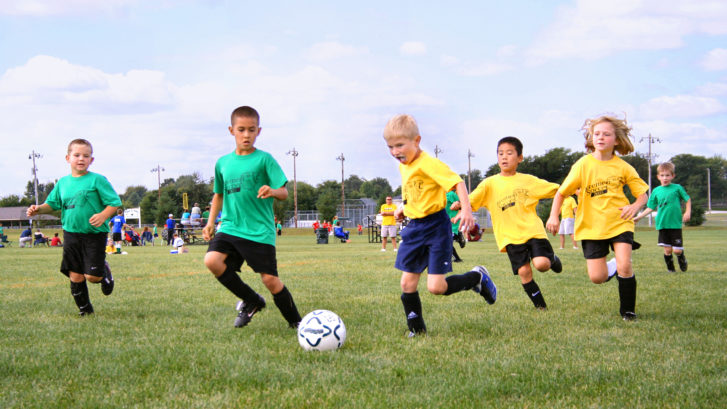Concussion in Young Athletes
Richey Wood – Certified Physical Trainer
“How could my child have a concussion? He was never knocked out.”
As a certified Athletic Trainer, I’ve seen otherwise caring parents push their child back into a competition, believing their young athlete to be fine. Our parents and coaches used to tell us, “you just got your bell rung”. We now know it’s much more serious.
The clearest sign we can offer of an athletic head injury is the feeling that something just isn’t quite right. Some symptoms are more obvious. It’s easier to spot a headache or dizziness. But frequently, only family members can detect the most troubling signs of a head injury. They know their young athlete is reacting or behaving ‘off-their-game’.
With the fall season, a host of youth sports activities return. Coaches, trainers, and school administrators have been closely studying the impact of head trauma related to soccer, softball, diving, cheerleading and a host of other competitive collision sports following the growing awareness of football concussion dangers.
Concussion Guidelines
Certified Athletic Trainers work with schools and athletic leagues. They help protect our young men and women competing in any sport from injury. Every year, the Mississippi High School Activity Association (MHSAA) updates their concussion policy and protocol for any head injury involving a young athlete.
These guidelines will continue evolving as we learn more about the causes and impacts of concussions. For these guidelines to be most effective, parents and family members must be aware of concussion signs and symptoms. Familiarity will help identify when the child should see the doctor. It also aids collaboration with the coach, who ensures schools follow proper protocols and procedures at school.
With any injury, rest is the most effective treatment. Resting a brain means avoiding stimulation from brightly lit rooms, video games, cell phones, and other electronic devices.
Well-established guidelines for return-to-play exist across the state. Unfortunately, research around return-to-learn is still evolving for student-athletes. Forcing athletes to miss a test or skip homework because they were injured in an extracurricular activity is academic punishment. When is it OK to start exercising the brain after an injury? For now, the answer is unknown.
Richey Wood is a Certified Athletic Trainer with the Mississippi Sports Medicine and Orthopaedic Center. To request an appointment at MSM’s Ruleville clinic at North Sunflower Medical Center, go to www.mississippisportsmedicine.com.

